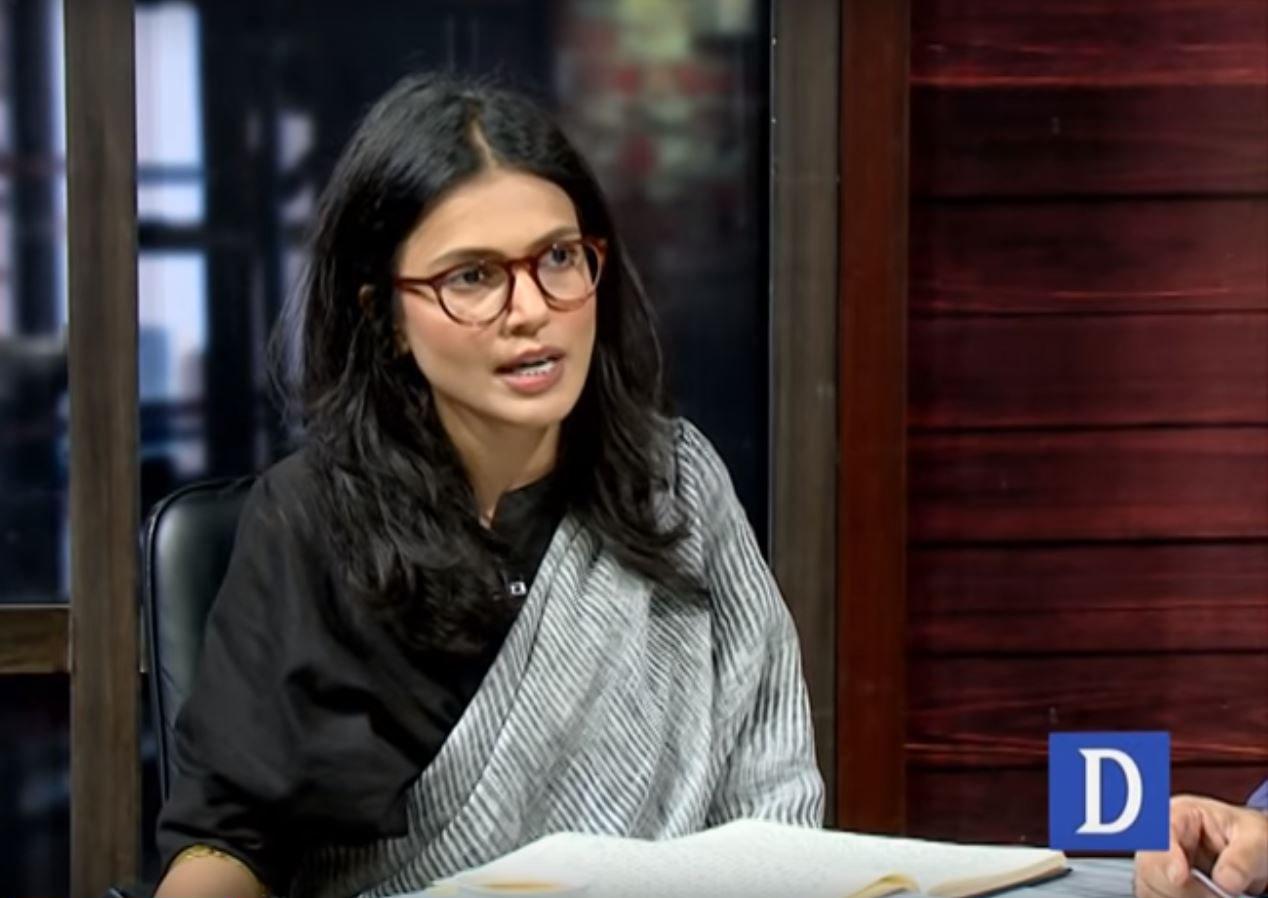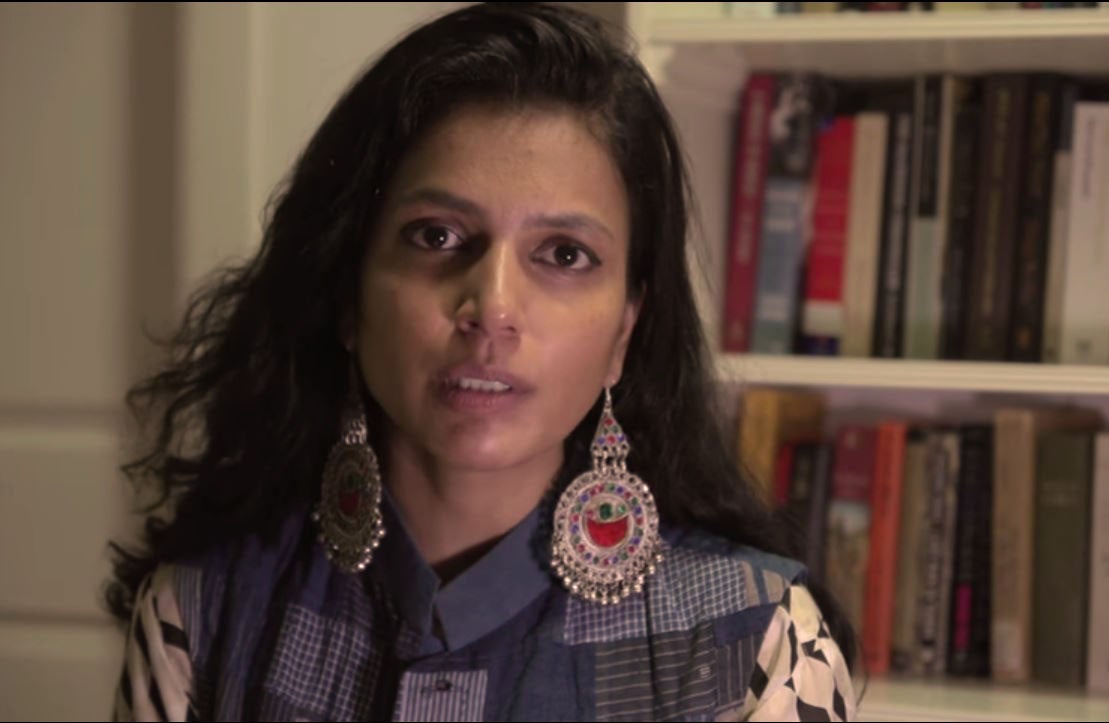Annie Ali Khan: ex-model and computer engineer who took to journalism to empower women in Pakistan
Having left Lahore for New York, where she completed a masters in journalism, she was all set to take her career as a magazine writer to new heights

Your support helps us to tell the story
From reproductive rights to climate change to Big Tech, The Independent is on the ground when the story is developing. Whether it's investigating the financials of Elon Musk's pro-Trump PAC or producing our latest documentary, 'The A Word', which shines a light on the American women fighting for reproductive rights, we know how important it is to parse out the facts from the messaging.
At such a critical moment in US history, we need reporters on the ground. Your donation allows us to keep sending journalists to speak to both sides of the story.
The Independent is trusted by Americans across the entire political spectrum. And unlike many other quality news outlets, we choose not to lock Americans out of our reporting and analysis with paywalls. We believe quality journalism should be available to everyone, paid for by those who can afford it.
Your support makes all the difference.Annie Ali Khan didn’t grow up thinking she was beautiful.
The model turned journalist, who has died suddenly aged 38, wrote poignantly in Marie Claire of the day, aged nine, when she came home from school to discover that her mother had left a tube of Fair and Lovely, a popular skin-lightening cream, on her dressing table.
“I would never pass for fair in Pakistan – a nation obsessed with light skin,” she wrote. The incident fostered an insecurity that Khan would channel into a determination to shine a light on inequality and injustice in her later years.
Khan was born Quratulain Ali Khan in Lahore. Her father had moved to Pakistan from India after partition. He was an airline pilot whose work took the family to Islamabad and then to Karachi, where Khan studied computer science at the Sir Syed University, and became a computer engineer, before embarking on a successful career as a model. Her first big break came with an advertisement for Lipton tea. Later, she moved into music videos and TV presenting. She won an MTV award for her part in singer Shehzad Roy’s music video “Sali”.

It was while shooting a music video in New York that Khan first met fellow science fiction “geek”, director Sofian Khan – the man who would become her husband. Though Khan’s career was flying high in Pakistan at the time, she moved to New York for her marriage. The Khans worked together on numerous projects, with Sofian directing his wife in a series called New York Loves Annie for Play TV.
Shortly after her move to New York, Khan made the decision to return to university. She took a masters degree in journalism at Columbia and set her sights on a new career as a writer.
She was somewhat dazzled and “humbled” by her tutors. “Dale Maharidge has won the Pulitzer. His book has inspired Bruce Springsteen to write songs about him,” she said. “My magazine writing professor John Bennet, who was a senior editor of The New Yorker, was an amazing human being who taught me a lot more than just magazine writing.”
She added: “One thing university has done has made me realise how insignificant I really am. You know there are so many people who’re quietly doing such amazing work.”
Upon graduating in 2011, Khan began to write for some of the magazines whose pages she had once graced as a model and soon gained a reputation for her thoughtful reporting on women.
In “Fair and Lovely”, that feature for Marie Claire in which Khan examined expectations of beauty for South Asian women, she wrote, “The older I got, the more I understood that fair skin was more than skin-deep in Pakistan. It was a status symbol, an indicator of class.”
After a childhood of being told by members of her own family that she was too dark-skinned to be considered beautiful, even Khan’s modelling success couldn’t entirely banish a sense of inferiority, particularly when she saw how her skin tone was adjusted in print.
The crunch came when she was asked to star in a campaign for Fair And Lovely cream. “My natural complexion, I realised, was the ‘before’ picture that the cream was promising to fix… Two partially overlapping versions of my face looked out over the traffic. The darker one peered out awkwardly from behind the bright smiling visage like an envious twin...” Seeing the poster was a turning point. “I had offered myself up as someone whom others were free to judge and why? Who has the right to decide what is beautiful? For the first time, I felt angry about having ever felt ashamed that I wasn’t fair.”
Though mostly living in New York, Khan wrote extensively about her country.
“A lot of people say that I’ve left Pakistan,” she said. “How can I leave Pakistan? I’m made of Pakistan.”
Her travelogues in particular were well regarded. But when she visited her homeland, she also questioned how the political climate in Pakistan was changing the country she loved.
In a 2015 interview with journalist Saad Zuberi, she said, “Security was not such a big issue when I used to live here. Our country has gone through major transformation in terms of the Taliban war and all the insurgency and extremism; the people are going through an ideological crisis and everyone’s begun to question the very ideology of Pakistan, which I think is a huge difference. People were not this depressed when I was here… It’s really high time we as a nation become clear on who we are and where we’re headed.”
A year later, in August 2016, “The Missing Daughters of Pakistan”, Khan’s report into honour killings, was published as the cover feature of the Herald Magazine.
After seven years in New York, Khan separated from her husband, who remained in the US, and returned to Karachi. She set to work on a book on women and the sacral landscape of Pakistan to be published by Simon and Schuster and continued to build her reputation as a journalist. In December of 2017, she was part of a British Council panel for a discussion entitled “On-screen and off-screen: representation of women in the media”.
Khan was found dead in her Karachi apartment after neighbours reported seeing a fire. She is believed to have taken her own life, dying of asphyxiation having set light to a pile of books.
In a post on her blog, titled “Rickshaw diary”, she recalled a ride in a rickshaw: “Seeing my face in the mirror, a young woman, her face and head uncovered, clearly a new customer, the old man with the grizzled beard laughed. ‘Here you have to learn to walk while holding the finger of death’.”
This, she wrote, was her “first lesson navigating in the city”. She added: “Sometimes my rickshaw is driving past another rickshaw, and as the two come together I see a young woman looking back at me from the other rickshaw. A fraternity of women passengers.”
Quratulain (Annie) Ali Khan, writer and model, born 1980, died 21 July 2018
Join our commenting forum
Join thought-provoking conversations, follow other Independent readers and see their replies
Comments